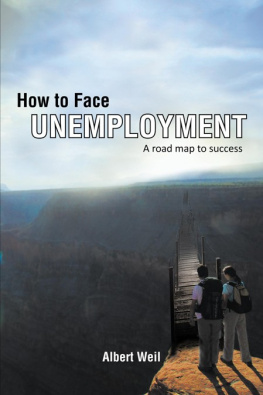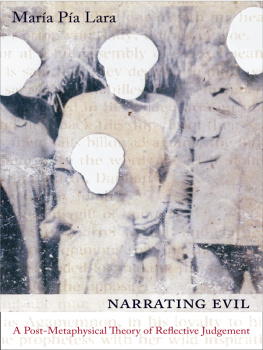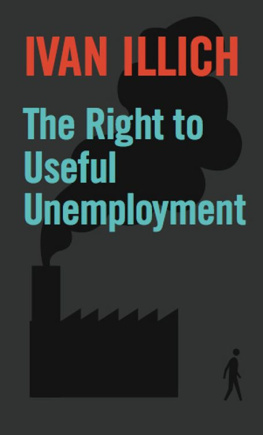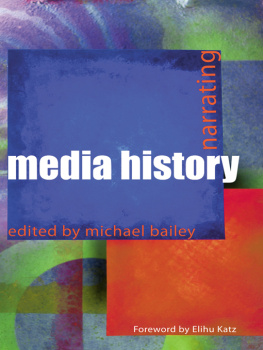First published 2001 by Ashgate Publishing
Published 2017 by Routledge
2 Park Square, Milton Park, Abingdon, Oxon OX14 4RN
711 Third Avenue, New York, NY 10017, USA
Routledge is an imprint of the Taylor & Francis Group, an informa business
Copyright Douglas Ezzy 2001
All rights reserved. No part of this book may be reprinted or reproduced or utilised in any form or by any electronic, mechanical, or other means, now known or hereafter invented, including photocopying and recording, or in any information storage or retrieval system, without permission in writing from the publishers.
Notice:
Product or corporate names may be trademarks or registered trademarks, and are used only for identification and explanation without intent to infringe.
British Library Cataloguing in Publication Data
Ezzy, Douglas
Narrating unemployment
1. Unemployment 2. Unemployment - Social aspects
I. Title
331.1'37
Library of Congress Control Number: 2001093276
ISBN 13: 978-0-7546-1528-6 (hbk)
An earlier version of draws on material from Subjectivity and the Labour Process: Conceptualising Good Work Sociology, 31: 427444. Finally, the methodological appendix includes material previously published in Lived Experience and Interpretation in Narrative Theory: Experiences of Living with HIV/AIDS Qualitative Sociology, 21: 169180. I acknowledge these journals for permission to reprint this material.
Responses to unemployment vary from depression, through stoic acceptance, to celebration. The primary aim and original contribution of this book is to provide a sociological explanation for these variations. The different effects of unemployment are analysed as a product of the different types of stories people tell. Drawing on the traditions of symbolic interactionism and hermeneutics I use a narrative conception of self-identity to analyse peoples stories about unemployment. Unemployment stories are in turn are a product of what happens to people, and how they react to what happens to them. This book examines the processes that allow some people to tell stories of hope and confidence about their unemployment, and lead other people to tell stories of pain, loss, and despair.
Most current studies of unemployment are either psychological or journalistic. The psychological studies have well developed theories of unemployment, but they typically rely on forced response questionnaires that do not allow unemployed people to speak for themselves. In contrast, the journalistic studies are often descriptively rich, but make little attempt to analyse the processes associated with unemployment. In this context, a study that both allows the unemployed to speak for themselves, and that draws on a sophisticated social psychological theory, is both timely and relevant to current debates in the unemployment literature.
The theories used to analyse the experience of unemployment in the psychological studies typically rely on simplified models of the person. These psychological models appear to ignore both the interpreted and temporal nature of human experience. An obsession with objective measures has lead psychologists to ignore the way people interpret their experiences. Associated with this is an absence of any sophisticated analysis of how memories of the past and anticipations of the future influence unemployed people.
The study focuses on the experience of unemployment as a consequence of losing a job. This allows the temporal nature of unemployment to be examined more fully. In particular, it facilitates the examination of how events in the past are made sense of through stories told in the present that, in turn, describe a feared or desired future. The social psychological theory of narrative-identity developed in the book emphasises the temporal and interpreted nature of human experience. The research explores in detail the influence of past experiences and imagined futures on the stories, or narrative-identities, of unemployed people. Further, I examine how stories about unemployment are influenced both by the objective events of lived experience and their interpretation as part of subjective narrative-identities. The explanation of the variations in the consequences of unemployment focuses on this dynamic interplay between the events of lived experience and their interpretation in a narrative.
A secondary aim of this study is to demonstrate the usefulness of a narrative conception of self-identity. While the self is socially and linguistically constructed, some deconstructionists have attempted to obliterate it, arguing that there is no such thing as a self. On the other hand, while the self is substantial and autonomous, it is not invulnerable and impermeable to social influences, as some psychologists appear to assume. The narrative theory utilised here charts a conception of the subject midway between these two extremes. The study of unemployment provides a concrete opportunity to assess and elaborate this theory of narrative-identity.
Similar to the everyday saying you dont realise how important something is until youve lost it, unemployment may be seen as a naturally occurring breach (Garfinkel 1967) providing an important and otherwise rare perspective on the meaning of working. Responses to being without work expose the meaning of work in a new light because being without work makes the person more aware of the significance of her or his loss. A third aim of the study is, therefore, to examine the implications of the experience of unemployment for the meaning of working.
The meaning that an individual gives to working is framed by cultural expectations about working. Paid employment is typically understood as an integral part of becoming an independent adult in modern society. However, people do not always simply accept this cultural discourse, dutifully following the career recommended by their parents or their school Rather, individuals use and manipulate this discourse as they struggle to find employment that best serves their interests. Similarly, the organisation of society shapes the events of a persons life. However, individuals also actively construct their lives through the choices they make about the various courses of action open to them. A narrative conception of identity focuses on these processes that are integral to the construction of the meaning of working and unemployment.
Qualitative interviews provide an excellent method for examining these issues. The empirical research is designed to assess and expand the theory developed in the earlier Chapters of the study. The descriptive Chapters report the fruits of this research, demonstrating that a sociological conception of the narrative self provides a rich, subtle and incisive framework for the analysis of the experience of unemployment. A qualitative methodology is the most appropriate for investigating these issues. Hammarstrom and Janlert (1997:294) observe that most unemployment research has been based on quantitative methods, and has not always provided a deep understanding of what it means to be unemployed or shed much light on mediating mechanisms or theoretical models.
The value of qualitative research is underlined by Payne (1994) who provides a telling critique of a book summarising the findings from a very large longitudinal quantitative study of youth unemployment in Australia (Winefield et al. 1993). She notes the study collected no contextual data, and only the briefest details of respondents actual experience of employment and unemployment; as a result interpretation is difficult (Payne 1994:712). While large quantitative studies have their place, allowing results to be generalised to larger populations, on their own they do not provide a sophisticated understanding of the experience of unemployment.












